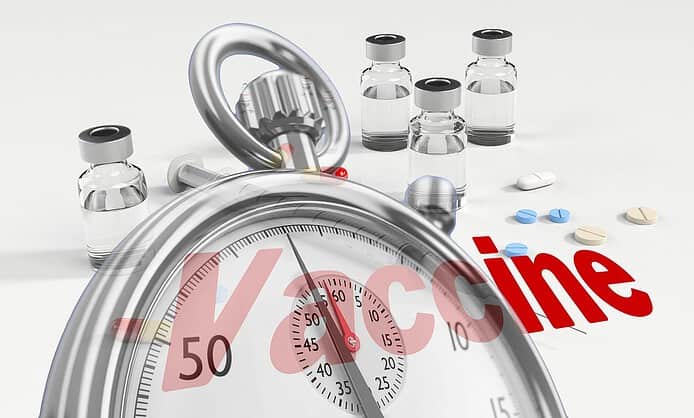Last Updated on October 15, 2024 by The Health Master
New Delhi: More than a year after Covaxin and Covishield were authorized for emergency use in view of the pandemic, the two vaccines have now received full market authorization.
However, although states continue to hold a healthy surplus stock of vaccines — more than 13 crore doses as of Friday morning — you’re unlikely to be buying Covid vaccines from your neighborhood medical store anytime soon to get that booster dose you’re not yet eligible for.
This is because the full market approval for the two India-made vaccines comes with conditions.
One of the conditions is that the vaccines have received full authorisation only for adults (Covaxin can be used among 15-18-year-olds, but only has emergency-use authorisation for this age group), and another is that they will have to be used in a “programmatic setting” — which means that registration on the CoWIN portal remains essential for their use.
The Drugs Controller General of India granted regular market approval for Covaxin and Covishield on Thursday.
Lav Agarwal, Joint Secretary, Ministry of Health and Family Welfare, said Thursday: “Covaxin and Covishield had got emergency-use authorisation. After that, they had applied for regular authorisation. The subject expert committee looked at the data they gave and both have now, with certain conditions, been given regular authorisation. As per rules, they qualify as new drugs.”
He also said that data on clinical trials and adverse events for the two vaccines — submitted every fortnight thus far — would now only need to be provided every six months. “Be it Covaxin or Covishield or AstraZeneca (for trials abroad) that data, too, will need to be submitted every six months,” he said.
The Oxford-Astrazeneca vaccine is marketed under the name Covishield in India, where it is manufactured by Serum Institute of India.
However, Agarwal added that both vaccines had been approved for use in adults, and that they were for use only in a “programmatic setting”. “This means that since monitoring is essential, the vaccines can be given only after registration on Cowin,” he said.
While retail sale is not an immediate option, there have been reports that a price cap of Rs. 275 per dose may be imposed on the vaccines. However, health ministry officials say no such decision has been reached.
Covaxin and Covishield received emergency use authorisation in January 2021, and have since been used extensively in India’s Covid immunisation programme. As of Friday morning, 164,44,73,216 vaccine doses — almost all being Covaxin or Covishield — had been administered in India. Sputnik V has also been in use, but its part in the programme has been extremely limited.
Retail sale still a ways off, Phase IV trials
Senior health ministry officials said that while the vaccines won’t be available at drug stores anytime soon, private hospitals can continue to procure them from the manufacturers.
Allowing retail sale, they said, would make it complicated to follow up with vaccine recipients or even document adverse events, given the poor compliance with drug sale rules in India.
A senior health ministry official told ThePrint, “There are many issues in retail sale. For one, these vaccines are not on full market authorisation for children. But once we allow sales, we lose control over who gets it.”
“On the other hand, there are many things that still need to be monitored. Unless there is a structured system to do that, we cannot keep track of these.
The issue is not vaccine availability, but how well we are willing to collect data about them. That is important because there is also something called a Phase IV trial,” added the official.
According to the New Drugs and Clinical Trial Rules, 2019, “Phase IV or post-marketing trials of new drugs are performed after the approval of the drug and related to the approved indication. Such trials go beyond the prior demonstration of the drug’s safety, efficacy and dose definition.”
It adds that such trials might not have been considered essential when the new drugs were first approved due to factors such as “limitation in terms of patient exposure, duration of treatment during clinical development of the drug, need for early introduction of the new drug in the interest of patients etc”.
“Phase IV trials include additional drug-drug interaction, dose response or safety studies and trials designed to support use under the approved indication, e.g. mortality or morbidity studies, epidemiological studies, etc,” says the document.
Govt starts anti-dumping probe against Ursodiol, a chemical used in Pharma Industry
USFDA gives nod to Glenmark this for Blood Pressure drug
USFDA issues warning letter to Aurobindo Pharma for manufacturing lapses at API plant
Govt amends Drug Rules to include liquid antiseptic under Schedule K
Govt issues draft amendment in Rule 8 under New Drugs and Clinical Trials Rules 2019
USFDA gives Orphan Drug Designation to Eplontersen
India and Pharmacy Education: Chapter: 12
Latest Notifications regarding Pharmaceuticals








